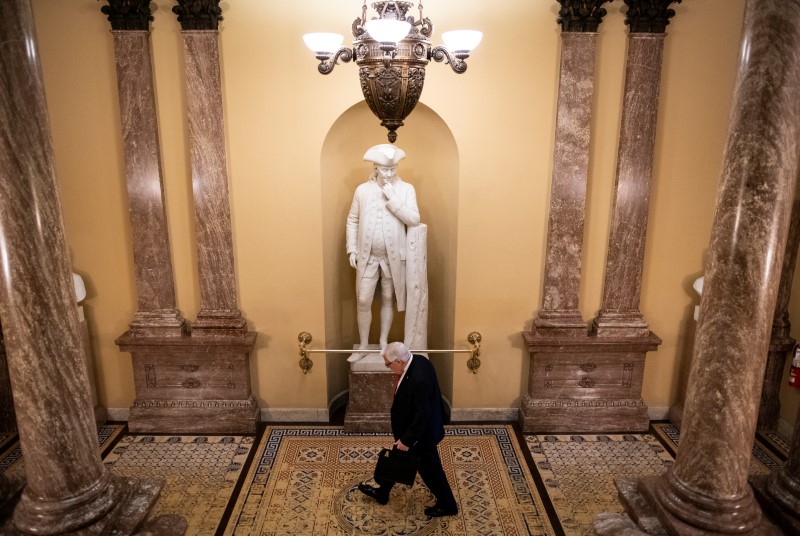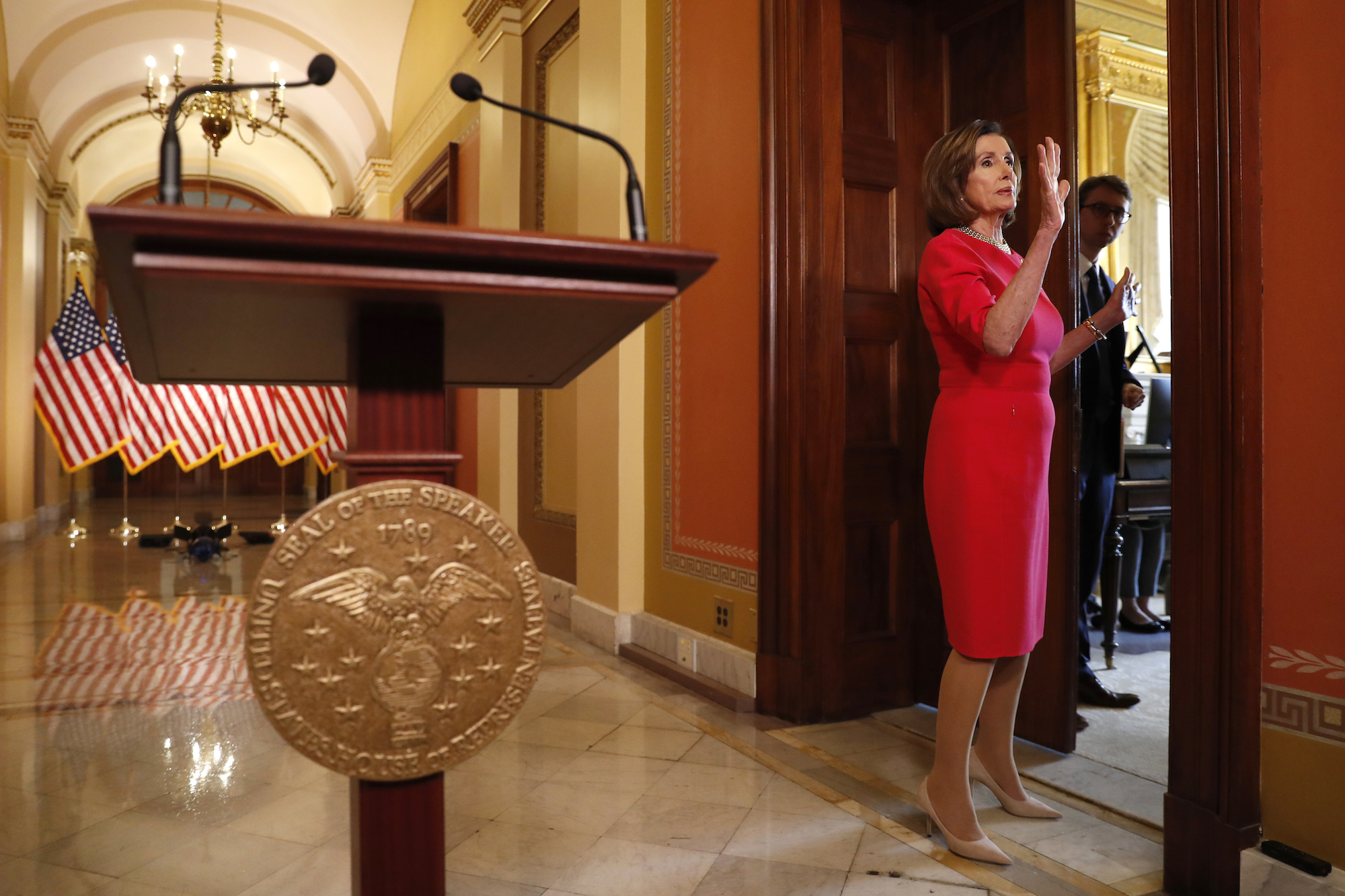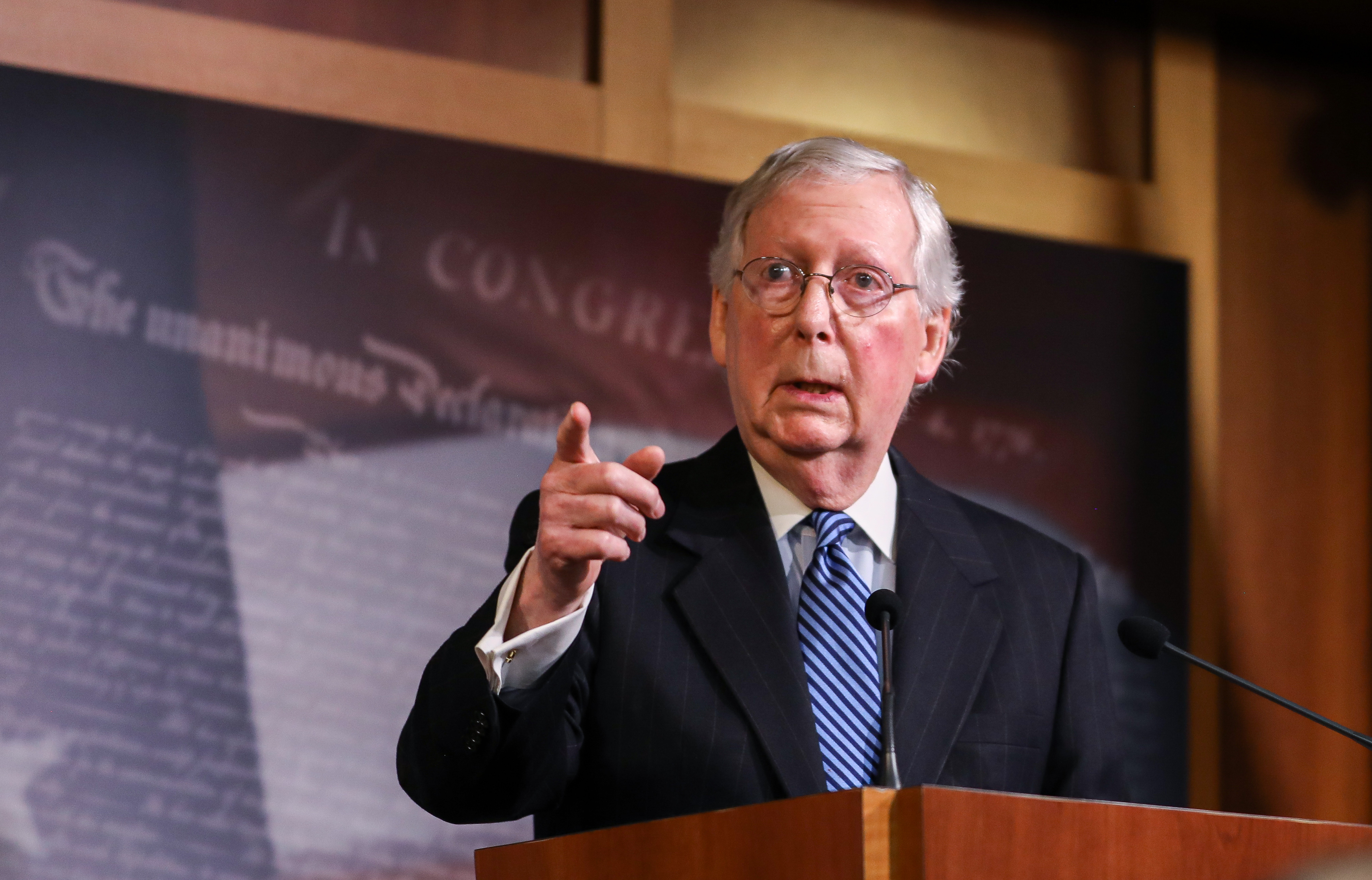
With at least two members of the House of Representatives testing positive for COVID-19, calls are mounting for alternative voting procedures if the $2 trillion economic rescue package cannot be passed by unanimous consent, meaning no lawmakers would have to be present for the vote.
Failing that, the best option would be a proxy vote, according to House Rules Committee Chair Rep. Jim McGovern (D-Mass.), who said voting remotely was off the table.
Speaking by phone to C-SPAN on March 25, McGovern said the best option would be to pass the economic rescue package by voice vote, or unanimous consent, neither of which requires the full House to be present.
“If we cant do bipartisan consent, were going to have to find other ways,” McGovern said. “Some people are suggesting we vote remotely. Others are suggesting maybe proxy voting. That would, again, have to adjust the rules.”
“We have some constitutional challenges, logistical challenges, security challenges,” he said of the alternatives. “Even though some of these things sound simple and matter-of-fact, in real life its pretty complicated.”

 Senator Mike Enzi (R-WY) walks past a statue of Benjamin Franklin in the U.S. Capitol in Washington, on March 24, 2020. (Reuters/Al Drago)
Senator Mike Enzi (R-WY) walks past a statue of Benjamin Franklin in the U.S. Capitol in Washington, on March 24, 2020. (Reuters/Al Drago)In a new report published Monday, McGovern concluded that if unanimous consent fails, a proxy vote would be a viable alternative.
“The House could implement proxy voting, in which an absent Member gives a present Member their proxy to cast an actual vote for them, for a prescribed period of time,” McGovern wrote in the report, calling it “the best of the options available under the circumstances.”
“If universal agreement is not reached, a time-limited change like enhanced unanimous consent or proxy voting could be adopted to help the House function,” he said in the report.
Proxy voting would let members cast votes without traveling back to Washington, and would involve authorizing a present Member to cast a vote on their behalf.
“This is a moment of national emergency,” McGovern wrote in a letter accompanying the report. “It is imperative that we act swiftly in the weeks and months ahead in a way that preserves the integrity of the institution so that we can continue to respond not just to this crisis, but future emergencies as well.”
Its unclear how much support that proposal would have. Asked if House Minority Leader Rep. Kevin McCarthy (R-Calif.) supported it, a spokesman said it was not “a preferable option.”
“Some of our members are quarantined,” said Rep. Haley Stevens (D-Mich.), on Twitter. “We need to figure out proxy vote option for quarantined members, which is currently not in house rules in event of pandemic.”
“Parliaments in Europe have also grappled with this issue and have been making rapid changes,” Haley added.

 House Speaker Nancy Pelosi speaks outside her office on Capitol Hill, Washington, on March 23, 2020. (AP Photo/Andrew Harnik, Pool)
House Speaker Nancy Pelosi speaks outside her office on Capitol Hill, Washington, on March 23, 2020. (AP Photo/Andrew Harnik, Pool)Wartime Level of Investment
Negotiators said Wednesday that U.S. senators and Trump administration officials reached an agreement on the massive economic stimulus bill.
The Senate will vote on the $2 trillion package later in the day and the House is expected to follow suit soon after.
“This is a wartime level of investment into our nation,” Senate Majority Leader Mitch McConnell (R-Ky.) said in a speech announcing the pact after days of negotiations between Republican and Democratic lawmakers, Treasury Secretary Steven Mnuchin, and other top aides to President Donald Trump.
“Were going to pass this legislation later today,” McConnell said.

 Senate MajoriRead More – Source
Senate MajoriRead More – Source[contf] [contfnew]



